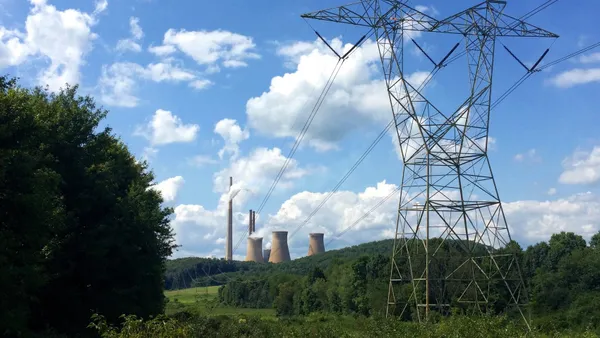Dive Brief:
- The Pimicikamak Okimawin tribal nation of Manitoba last week lobbied Minnesota lawmakers in an effort to head off changes to how the state allows hydroelectric power to be counted as a renewable source of energy.
- Minnesota is considering a bill which would allow utilities to count larger hydro projects as renewable sources of energy, which the tribe believes will increase the state's dependence on the energy and ultimately harm the environment.
- The tribe is also opposed to the 695-MW Keeyask Generating Station, currently under construction on the lower Nelson River in Manitoba.
Dive Insight:
Minnesota gets about 11% of its electricity from Manitoba Hydro, according to Midwest Energy News, and the Pimicikamak Okimawin First Nation tribe says the dependence is fouling their rivers disrupting their way of life.
“They say hydro is green and renewable, but where I come from it’s gangrene and un-renewable — gangrene because it cuts off the life of the river and its tributaries, leaving them suffocated and destroyed,” Darin Paupanakis, secretary to the Pimicikamak Councils, told the news outlet.
Now, state lawmakers are considering changes that would allow utilities to count large hydro projects as renewable resorces. As it stands, projects over 100 MW are not allowed to count towards utility's renewable goals. But according to the First Nation tribe, that would deepen the state's dependence on hydro rather than pushing to explore greener ways to supply power.
Utilities in Minnesota and Wisconsin will buy more than half of the output from a new 695-MW plant now under construction on the Nelson River. Manitoba Hydro in 2011 said it had signed agreements with Minnesota Power for the sale of 250 MW, a 100 MW deal with Wisconsin Public Service and a 125 MW contract with Northern States Power.
The project's web site says the facility will generate business and employment opportunity to First Nation members, but Paupanakis said the tribe did not approve of the project and it has “turned the environment upside down.”














